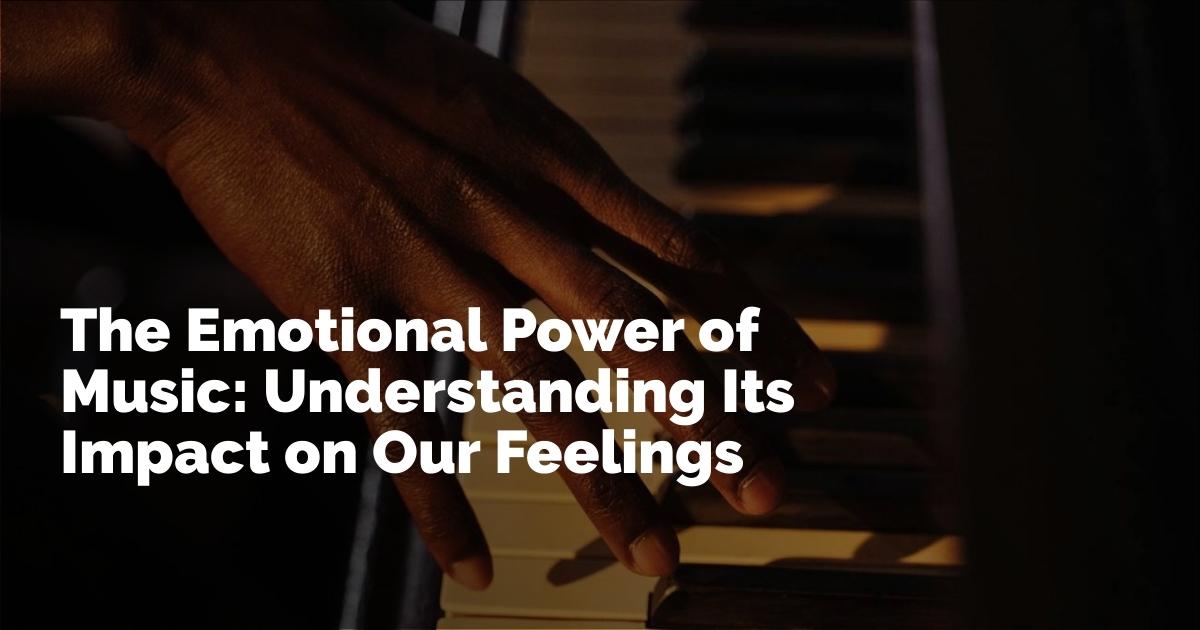The Profound Emotional Impact of Music
The ability of music to evoke profound emotions—chills and thrills—has always fascinated listeners. Whether it's a song that moves us to tears or one that invokes sheer joy, music is deeply entwined with our emotional experiences. This connection between music and emotion is not only commonly accepted but also supported by a growing body of empirical research. Here, we explore how music influences emotions through various mechanisms, providing insight into why it holds such a powerful place in our lives.
The Mechanisms Behind Music and Emotion
Understanding how music can move us involves delving into several key mechanisms. Each mechanism speaks to the complexity and depth of our relationship with music, illustrating why it evokes such powerful emotional responses.
Conditioned Response
One profound way music influences our emotions is through conditioned responses. Often, we associate specific types of music with particular life events. Over time, these associations trigger emotions when we hear certain pieces. For instance, if someone first heard Chopin's Waltz in E minor during a sad time, it might consistently evoke sadness. Conversely, if another individual encountered the same piece during a joyous period, it would likely bring about happiness. The emotions triggered by music are less about the music itself and more about what it reminds us of, making our individual experiences unique.
Nostalgia
Music is a potent trigger for nostalgia, capable of transporting us back to significant periods of our lives. A song from one's teenage years or from a memorable event often brings a rush of nostalgic emotions. These feelings are rooted not in the music itself, but in the memories and experiences the music evokes. This powerful connection can evoke feelings of warmth and familiarity, providing comfort and a sense of continuity in our lives.
Music as an Expression of Emotion
Music is often seen as a direct expression of emotion, capturing both the highs and lows of the human experience. Musical compositions embody expressive qualities that resemble emotions, such as melancholy and cheerfulness. The tempo, rhythm, and tonality of a piece all contribute to these expressions. A fast, upbeat tempo might conjure cheerfulness, while a slow tempo with minor tonalities often evokes sadness. This mirroring of emotions in music resonates with how people might express their feelings vocally—energetic when cheerful and subdued when sad.
The Power of Surprise
One of the pleasures of listening to music lies in the element of surprise. Much like enjoying a novel with unexpected twists, music can captivate listeners by departing from predicted patterns. Familiar melodies lose their ability to surprise us because we become accustomed to their progression. However, fresh compositions or innovative interpretations of known pieces can rekindle this surprise, maintaining our engagement and enhancing our emotional experience.
The Intriguing Nature of Musical Pleasure
Though music comprises merely a sequence of tones, its temporal dynamics can elicit remarkably pleasurable responses. This capacity of music to produce "highs," akin to the effects of powerful addictive substances, speaks to its deeply rewarding nature. The enjoyment derived from music stems not from the individual tones but from how they interrelate over time, creating complex, emotionally resonant experiences.
Collective Emotion Through Music
Attending a concert or participating in music-making can amplify emotions through shared experiences. This phenomenon, known as emotional contagion, illustrates how music can synchronize hearts and minds, enhancing group connectivity. As people attune to rhythms and harmonies together, they often experience positive attitudes towards one another. This synchronicity can foster a sense of community and bonding, evident in everything from concert-goers to adolescent subcultures united by a shared musical taste.
Music’s Emotional Power and Its Implications
In essence, music’s capacity to evoke emotion is a vital aspect of its appeal. For many, music serves as a tool for stress relief and mood enhancement, offering a more dynamic emotional uplift than quiet relaxation. This potential explains why individuals consistently turn to music, whether to navigate personal challenges or simply enrich their daily lives.
The exploration of music's emotional impact underscores its invaluable role within human culture. It is a testament to music's unique ability to connect us to our emotions, our memories, and to one another, making it an enduring and cherished art form.
출처 : Original Source

